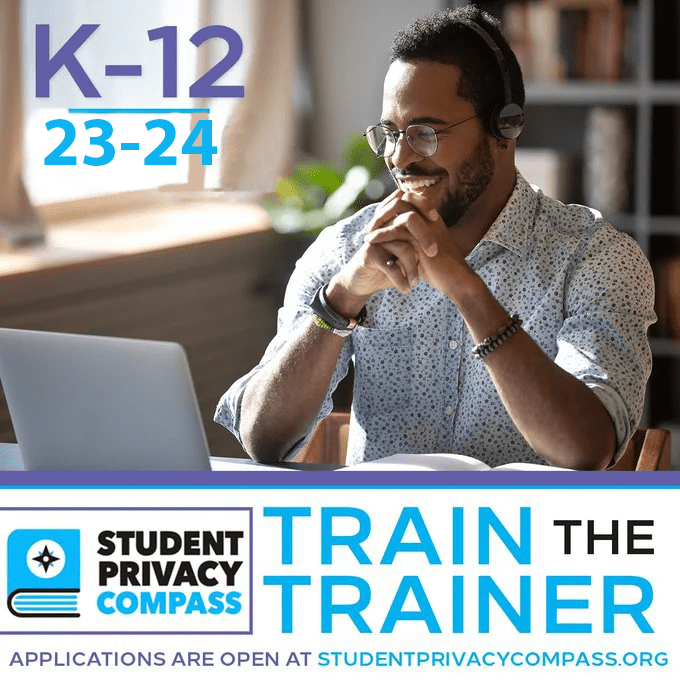FPF K12 Student Privacy Train-the-Trainer 2023-2024 Program
Since 2013, over 130 new student privacy laws have passed in 42 states, with more bills and regulations being rolled out each year.
This massive shift in the legal landscape makes it hard for attorneys serving schools and districts to stay up-to-date to meet their clients’ needs. This isn’t only a legal problem: as technology changes and the amount of information schools collect and maintain increases, conveying best practices to schools that adequately protect student privacy is extremely challenging.
The Future of Privacy Forum, a nonprofit focused on privacy, created a Train-the-Trainer program in 2020 to help school attorneys and other key stakeholders become student privacy experts who can help their clients and train their peers on this changing legal landscape.
Whether you are new to the student privacy world or an experienced practitioner, the free 9-month FPF Student Privacy Train-the-Trainer Program will provide the knowledge and skills to make you a student privacy expert while connecting you with a peer network and student privacy experts from across the country.
Participants should have a strong interest in student privacy and the willingness to conduct student privacy training at their institutions or relevant conferences. They should also be able to dedicate on average six hours per month for the program’s virtual webinars (90 minutes) and asynchronous activities (4-5 hours).
The course will meet via Zoom on the 2nd Thursday of the month from 2:00-3:30 ET from October 2023 to June 2024. To participate, you must have a Zoom account and a Google account able to use Google Classroom and Google Drive
To apply please click the “apply to the program” link below or visit https://studentprivacycompass.org/ttt-k12-application23/. Applications are accepted and reviewed on a rolling basis but must be submitted no later than September 29th. We review each application to try to get a balance of participants across district size, states, and backgrounds (instruction, technology, legal) that will be in a position to take what they learn and implement it at their district or state agency.


